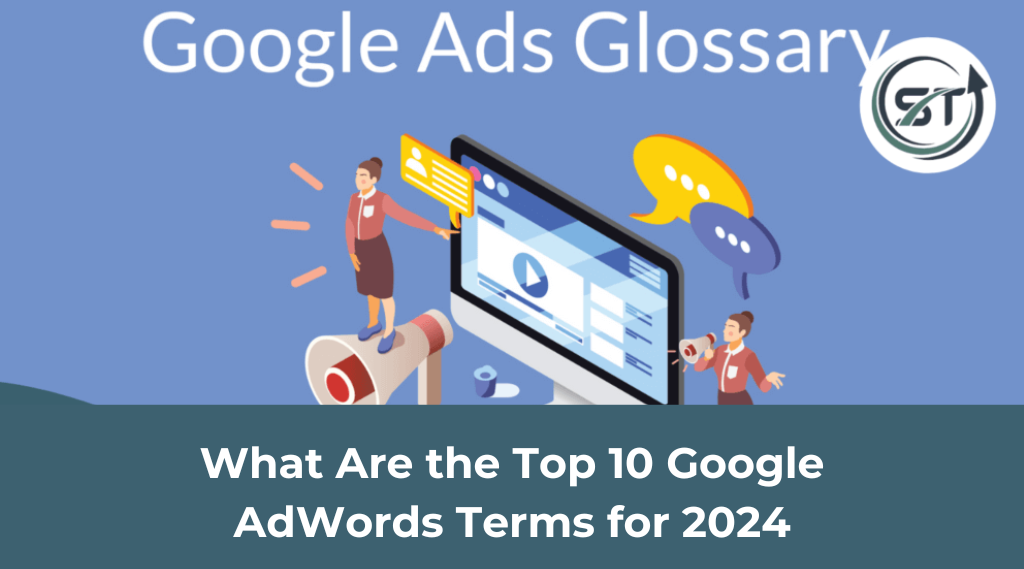
Google Ads is a simple, powerful, self-service advertising program that helps businesses connect with people in more relevant and meaningful ways. It allows the user to create, manage, and measure online advertising campaigns across one or many products from search and display to video ads. As per Google ads management service providers the user can target customers with ads exactly where they search. For example, the ads could appear when people search for the products and services sold by the company or user or search for products and services similar to the company. Following are some important glossary terms everyone needs to know in the Google ads campaign checklist that is helpful in deciding the type of account, setting up a campaign, and adding the first ad.
Table of Contents
ToggleGlossary Terms:
Campaign
Campaigns are the collection of ads and keywords. The company can have a large number of campaigns, and each one can have an unlimited number of ad groups. Each campaign has a unique name and defines the target for the ads. For example, the company may run different ads directed to mobile users versus desktop users, or they may want to show ads from a specific ad group only to those users in specific locations.
Ad groups
Ad groups are the foundation of your Search Network campaign and are a great way to organize targeting settings (e.g., location, language, demographics). The primary purpose of ad groups is to create a structure that helps the company manage bid strategies, report data, and assign bids when working with multiple keywords and negative keyword lists. For example, in a home cleaning business where services may be offered such as mopping, deep cleaning carpets, housekeeping, etc., the different types of offers can be placed in separate groups and cost-per-click (CPC) bids can be set for each ad group.
Keywords
Keywords are the words and phrases that people type into search engines like Google, Yahoo! and Bing to find the products or services they’re looking for. There are also other factors that influence whether the ad appears on a search page or not, but the company should consider keywords as a starting point for planning the advertising strategy. Many companies use the keywords they think are most relevant to what they want to advertise, while others use the data in their website log files to see which keywords visitors use when they arrive at (and leave) their site. For example, if the company is selling shoes, then they can create a campaign for the store by choosing keywords like “shoes for men” or “women’s high heels”. If a company has an online store, then the user can choose keywords that match the products sell by the company and help them reach potential customers.
Ad
The ad is the first opportunity to connect with the customers and potential customers, so it’s a good idea to spend a little time reading it over. Look for spelling or grammar errors in the ad. Make sure it includes the keyword, and that the landing page can usefully respond to the customer. For example, if the company is using “shop now” as a call to action, they have to make sure that the landing page has a place customer can actually shop. Or if the company runs ads promoting business while targeting keywords related to running shoes and fashion, then the ad text can help tell customers what they’ll find if they click: fashion advice, running shoe reviews, product details, and more. If a company is selling a dog training course, on the other hand, then the company will have to highlight the benefits of that course.
Bids
With Google Ads, the user sets a maximum bid for the keyword. That means when someone clicks on the ad, the company only pays as much as what has been set with as a bid. When the company adds a keyword to the ad group, the system automatically suggests a bid based on how competitive the keyword is and how much traffic it might get. The company can either choose this suggested amount or enter a bid that’s higher or lower, depending on how much they are willing to pay for each click.
Quality Score
According to Google’s Quality Score guidelines, Quality Score is a number between 1-10 that represents how relevant the keywords are to the ads and landing page. Google determines quality by considering several factors, including click-through rate, ad relevance, expected click-through rate, expected conversion rate, and historical data. The quality score directly affects how much the company pays for clicks on the ad, in general, a high-Quality Score can mean lower cost per click (CPC) and a better ad rank, which means higher page positions. A Quality Score of 10 is considered an excellent score.
Ad Rank
Ad rank is how Google determines where to show the company ad relative to other ads. The Ad Rank that appears in the Keywords tab provides more information. Ad Rank is the metric that determines where the ad will show up, relative to other ads on Google, when it’s triggered to appear. It’s determined using the bid, ad’s quality score — which includes both a clickthrough rate and a relevance score — as well as other factors. It also explains what can be done if the ad isn’t showing up on Google Search or the Display Network either increase the maximum cost-per-click bid or eliminate unnecessary keywords.
Conversion
With Google AdWords, the company can carefully craft an ad campaign using a variety of keywords and phrases to encourage visitors to the site. A key part of Google Ads is paid conversion tracking, which allows the company to specify the action that they want the company ads to lead to such as product purchase, a sign up for email newsletter, a phone call from someone who’s interested in the business, and more. For example, a lead may fill out a form on the website or watch the video and contact the company as a result of seeing the ad. Conversions are the most valuable type of ad engagement because they indicate that a user is ready to engage with the business. The company only be charged for conversions that take place after a click on the ad. Also, the company can track these conversions over time and see which of their ads are leading to the most valuable results.
Ad Extension
Google Ad extensions are additional elements that can add to the company ads to make them stand out, get more clicks, and increase the campaign’s performance. It is the way to make the ads bigger, bolder, and more likely to catch peoples’ attention. With ad extensions the company can show more information about their business, special offers call to action—whatever they think might help people decide to click through and visit their website.
Audiences
Audiences are a critical part of any advertising campaign. No matter what the company demographic is, it is important to know where the audience is, and how they think. Knowing the needs, interests, and concerns of the people the company will be targeting is essential to the success of any campaign.
Wrapping Up:
According to search engine marketing consultant, setting up a Google AdWords campaign can be quite confusing if people are not familiar with all the terms mentioned above. To get a successful and profitable campaign, one needs to have a good understanding of all the terms. The search engine marketing expert talks about a company building a campaign and adding keywords, just as they would to any other search engine. From this point, they are able to set keyword-level bids and adjust the Quality Score of their ads, are among other things.
Also read: Tools for Search Engine Marketing












